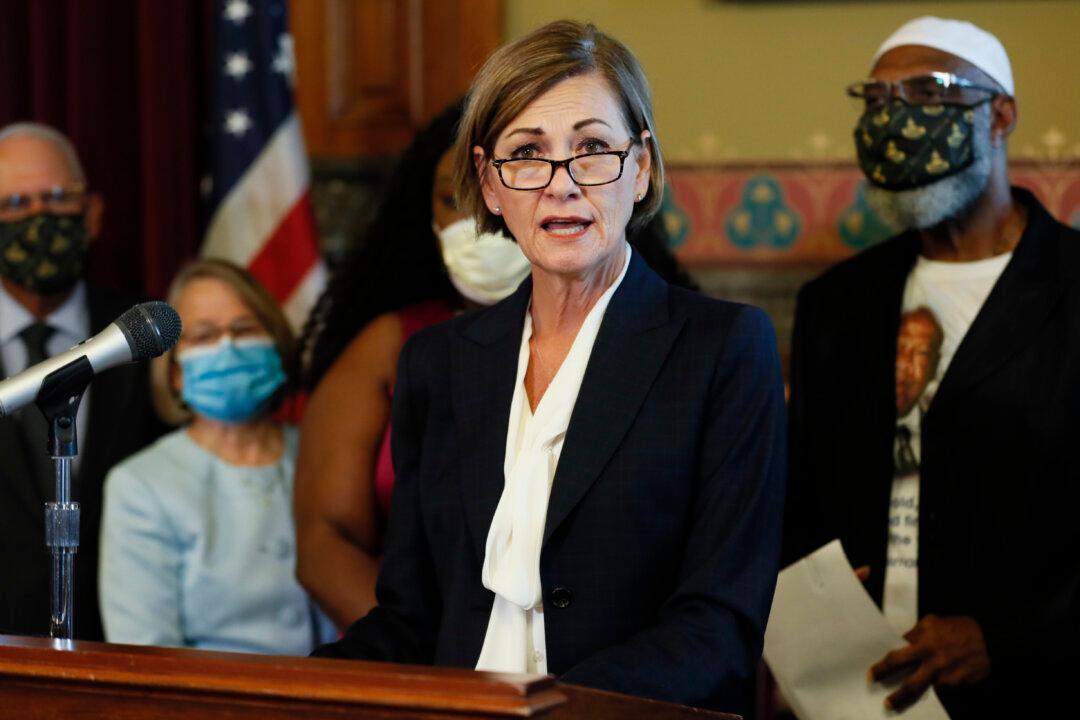Felons in Iowa will automatically be allowed to vote upon completion of their sentences, under a new executive order signed by Republican Gov. Kim Reynolds on Wednesday.
“Quite simply, when someone serves their sentence, they paid their price our justice system has set for their crimes,” Reynolds said at the bill signing. “They should have the right to vote restored automatically. Plain and simple.”





